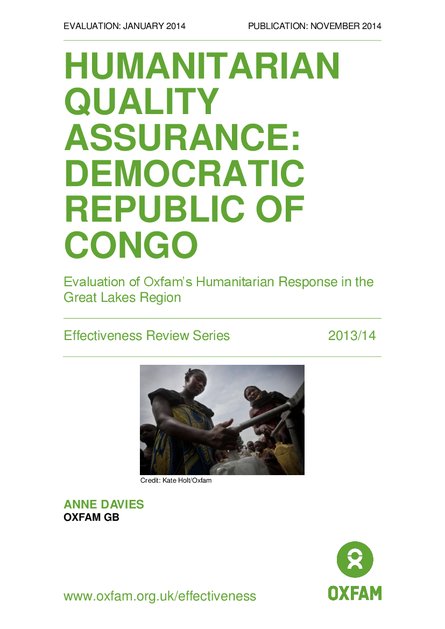
This evaluation report is presented as part of the Effectiveness Review Series 2013/14, selected for review under the humanitarian response thematic area using the application of Oxfam’s Humanitarian Indicator Toolkit (HIT). The report presents findings from the evaluation carried out between November 2013 and March 2014 of Oxfam’s humanitarian response in the Great Lakes region of Democratic Republic of Congo, between July 2012 and June 2013.
Between January and April 2012 fighting between militia groups and the DRC Armed Forces (FARDC) displaced some 320,000 from North Kivu and 300,000 from South Kivu. The combined effects of conflict and displacement caused cholera outbreaks and food insecurity, inducing additional numbers of people to flee over borders into camps in Rwanda and Uganda. By October 2012, around 20,000 refugees had fled to Rwanda and 24,000 refugees to Uganda, bringing the total displaced (IDPs and refugees) to over 660,000. In response to the emergency, Oxfam intervened with WASH, Emergency Food Security and Livelihoods and Protection and Community Services programmes to IDPs in DRC and refugees in Rwanda and Uganda, at an approximate cost of US$ 9.5m (some £5.76m), reaching approximately 310,000 people.
Humanitarian Indicator Tool (HIT) is a methodology designed to estimate the degree to which the programme meets 13 recognised quality standards via a desk review.